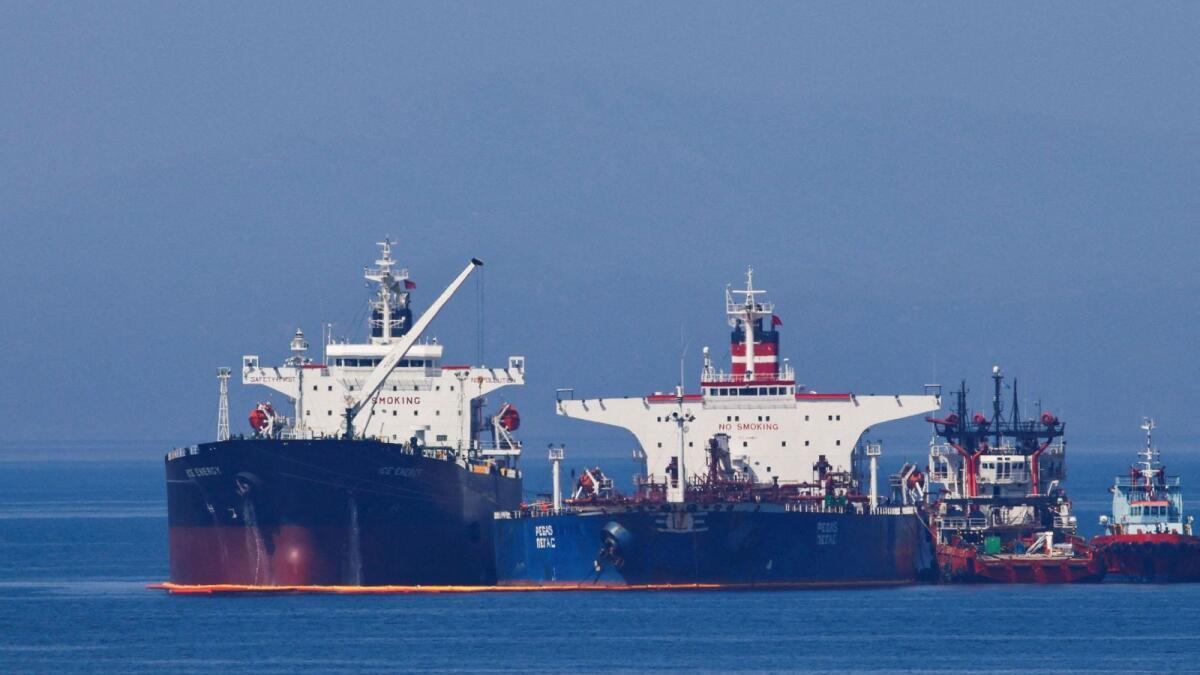
Opec+ Could Cushion Iran Oil Shock But Not Broader Disruption
Iran fired hundreds of missiles at Israel on Tuesday in response to Israeli airstrikes and attacks. Israel's Prime Minister Benjamin Netanyahu said Iran made a big mistake and would pay for it, and Iran threatened a crushing response if Israel retaliated.
Israel's options include targeting Iranian oil production facilities among other strategic sites, US news website Axios reported on Wednesday citing Israeli officials. Iran is an Opec member with production of around 3.2 million barrels per day or three per cent of global output.
Iranian oil exports have climbed this year to near multi-year highs of 1.7 million bpd despite US sanctions. Chinese refiners buy most of its supply. Beijing says it doesn't recognise unilateral US sanctions.
“In theory, if we lost all Iranian production - which is not our base case - Opec+ has enough spare capacity to make up for the shock,” said Amrita Sen, co-founder of Energy Aspects.
Opec+, which includes Opec and allies like Russia and Kazakhstan, has been cutting production in recent years to support prices amid weak global demand. So the group is sitting on millions of barrels of spare capacity.
Cuts by Opec+ producers currently total 5.86 million bpd. Analysts estimated Saudi Arabia is able to raise output by three million bpd and the UAE by 1.4 million.
Opec+ met on Wednesday to discuss compliance with cuts. The group did not discuss the Israeli-Iranian conflict, Opec+ sources said.“The only thing mentioned about the geopolitical situation and the conflict was the hope for non-escalation,” said an Opec+ source familiar with the discussions.
While Opec has enough spare capacity to compensate for the loss of Iranian supplies, much of that capacity is in the Middle East Gulf region and potentially vulnerable should the conflict escalate further, said Giovanni Staunovo, analyst at UBS.“The effectively available spare capacity might be much lower if renewed attacks on energy infrastructure on countries in the region happen,” he said, adding the West might have to tap strategic reserves if there were severe disruptions.
Israel has so far refrained from attacking Iranian oil facilities. Oil analysts and security experts have said Israel could target Iran's oil refining sites and the Kharg Island oil port, which handles around 90 per cent of the country's crude exports.
During the Iran-Iraq War in the 1980s, Baghdad regularly attacked tankers around Kharg Island and threatened to destroy the oil terminal.
“Iran and its proxies could potentially target energy operations in other parts of the region in order to internationalise the cost if the current crisis devolves into an all-out war,” said Helima Croft from RBC Capital Markets.
Oil prices have traded in a narrow range of $70-90 per barrel over the past years despite the war between Russia and Ukraine and conflict in the Middle East.
A rise in US production has helped ease the fear premium in oil markets, said Rhett Bennett, chief executive at Black Mountain, which has operations in the US Permian basin.
The US produces 13 per cent of global crude and almost 20 per cent of global oil liquid production compared to Opec's 25 per cent global crude production share and some 40 per cent by Opec+.
“This diversity of supply from US domestic sources, combined with healthy spare capacity within Opec, is translating into the market feeling insulated from a dramatic supply shock – regardless of perpetual Middle East flare ups,” Bennett said.
A broad conflict in the Middle East, however, with a major impact on production would inevitably push oil prices up.
That would drive up fuel costs. A related rally in gasoline prices could hurt US vice president Kamala Harris in her campaign to win the Nov. 5 presidential election against Republican candidate Donald Trump.
“The United States will likely try to push Israel for a more modest response, wanting to avoid a significant escalation in tensions,” said Warren Patterson from ING.

Legal Disclaimer:
MENAFN provides the
information “as is” without warranty of any kind. We do not accept
any responsibility or liability for the accuracy, content, images,
videos, licenses, completeness, legality, or reliability of the information
contained in this article. If you have any complaints or copyright
issues related to this article, kindly contact the provider above.























Comments
No comment